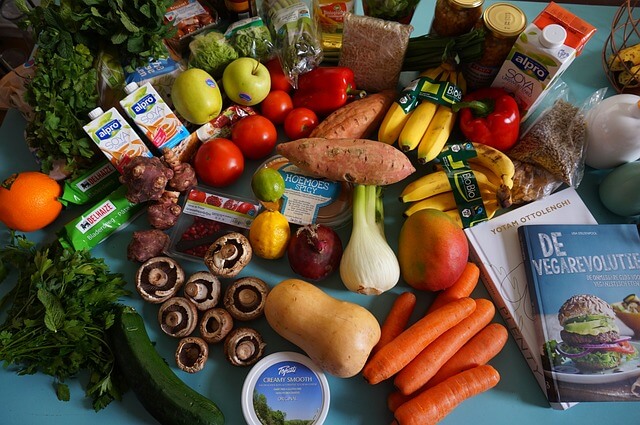
Eating is one activity that we would never forget. After all, there is always a reminder from your body when you forget to eat, so it’s impossible to skip it.
Your stomach gets hungry, your concentration slips and you feel your energy is depleted.
Sadly, even if it’s impossible to forget eating, it is rather easy to forget what kind of food we should eat.
The message from your body about this is subtle, so you don’t really notice. As long as you’re hungry no more, then everything is fine.

But, is it?
Actually, no, when you don’t watch what kind of food you eat. If you don’t have enough nutrients in your body, your body will protest it, because you eat too many low-nutrient food, you will feel lethargic, depleted of energy or low mood.
When you eat unbalanced food, you are at risk to develop some sickness like obesity or diabetes.
So, what food do you need to eat? Is there any kind of eating you should follow?
The answer is yes there is. It is called healthy eating.
In this article, you will learn about healthy eating, why you should develop the habit of eating healthy, and how you can start healthy eating habit.
What is healthy eating?
In simple words, healthy eating can be translated into eating food that contains the required nutrients for the body to function properly.
To function properly, the nutrients absorbed by the body must be enough and balanced.
To ensure that the nutrient is enough and balanced, one has to eat regularly, with meals consisted of food that contains nutrients, with the proportionate portion.
Your body needs to have three meals a day, in the morning, noon, and evening. At each time, the digestive system secretes acid to the stomach to help digest food into nutrients that the body can absorb.

Skipping one of those mealtimes may result in insufficient nutrients, which will make you feel tired, lethargic or faint.
Skipping too many mealtimes in a long term can even result to digestive symptoms, such as ulcer.
Your body also requires various kinds of nutrients. They are carbohydrate, protein, fat, vitamin and various nutrients.
Not every food contains all of these nutrients. One food is rich in carbohydrate but lacks vitamin. The other is rich in proteins but devoid of any fibre.
So, to ensure your body gets all the nutrients it needs, you will need to understand what nutrients a food contains and eat various types of food.
Lastly, your body will need the nutrients in the right amount. It means, it can’t be too little and it can’t be too much as well. You will need to make the amount of food you eat proportionate to your body weight.
What are carbohydrates, protein and fats?
The three of them are the most famous nutrients. Each has a different function for the body, and you will need to replenish them daily.
Carbohydrate:
It is needed as the source of energy. You can get carbohydrate in bread, rice, flour, and potato.
Lacking carbohydrate will make you feel tired and lethargic, as your body doesn’t have a fuel to keep its function running.
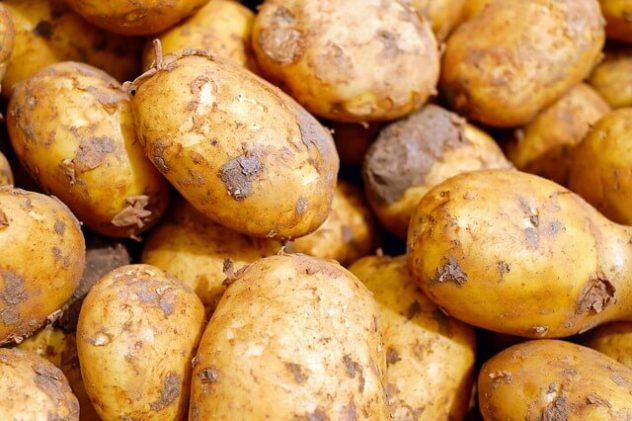
However, too much of carbohydrates means there are excessive energy in your body, more than you can spend.
As a result, your body saves this fuel in the form of fat inside your body. If you let this happen overtime, you will get disproportionately fat or worse, obese.
Protein:
It is the tissue builder of your body. Your body consists of various organs and each organ consists of thousands of cells.
A certain amount of cells dies every day, so your body needs to create new cells. Protein is the main component of these new cells.
So, when you lack protein, your body will get some difficulty replacing the dying cells. These can cause some symptoms like muscle loss, severe weight loss, fatigue and anemia.
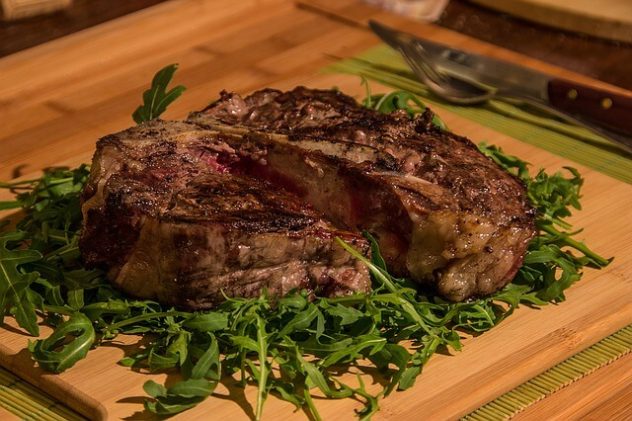
Psychological problem such as depression and anxiety can be derived from lacks of protein as well.
Meanwhile, if you eat too much protein, your body will have more amino acid than it needs to renew its cells. The amino acid will be excreted, which can burden your kidneys.
Fats:
People often perceive fats in negative way. It is often associated with stroke, hypertension and other fatal illness.
However, fat also has its own role in the body. Fat becomes the medium that helps vitamin B and vitamin C to be absorbable to the body. It is also a source of energy beside carbohydrates.
However, it is true that too much of fat can be dangerous for the body. When you consume too much fat, especially saturated fat, your body will save it under the skin.

Too much of them and they will press into your blood vessels; make them narrower than they should. In severe case, they even make the blood vessels completely sealed. This is sometimes what causes stroke.
Guide to healthy eating 1: how to start to eat routinely
Eating routinely is not hard. As we’ve explained it above, you will feel hungry when your body needs food. It gets hungry and you will feel tired and fatigued. Usually, you will get hungry in the morning, noon, and evening.
However, sometimes you don’t get hungry at those certain mealtimes. When this happens, you will need to keep the routine going.
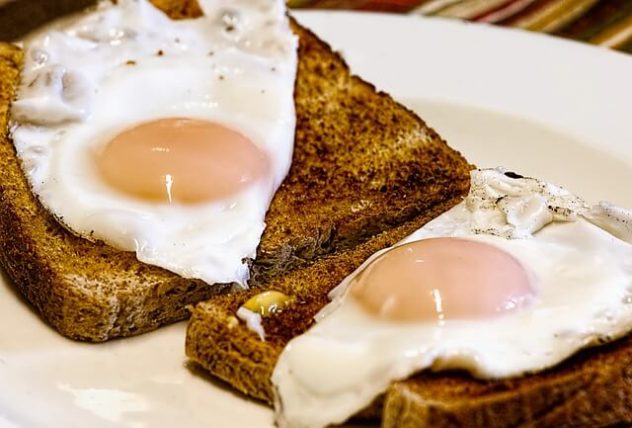
The main obstacle for eating routinely these days is due to busy schedule. To ensure that you don’t skip your meal, there are many tricks to do:
- Prepare a ready to eat breakfast such as overnight oat.
- Pack lunch, so if it is really necessary, you can eat on your desk.
- At weekend, make a week worth of food and freeze them. Then, during the weekdays all you need to do is thaw them.
Guide to healthy eating 2: how to eat balanced menu
We’ve covered the important nutrients earlier: carbohydrate, protein, fat, vitamin etc. So, at any given meal, you need to eat various foods that contain those important nutrients.
Typically, you will need to have carbohydrates (rice, bread, potato, etc), protein (egg, meat, tofu, tempeh), fat (oil, meat), vitamin (fruits and vegetables) and minerals (vegetables).
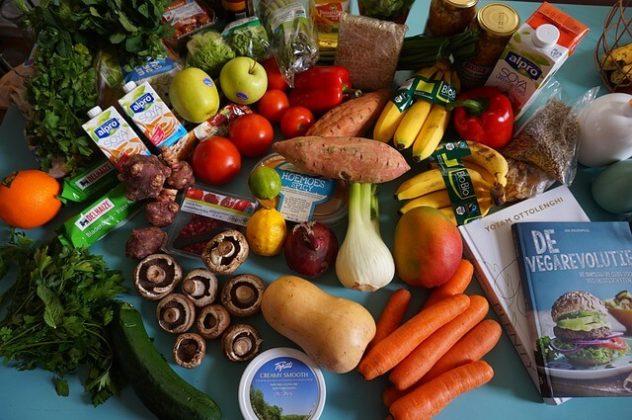
There is an easy trick to make sure your plate is balanced, as well as well-portioned. Take a plate and fill half of it with minerals. Fill ¾ of the other half with carbohydrates, and the rest with proteins. Complete the meal with a glass of milk or a cup of yogurt.
Guide to healthy eating 3: how to eat enough
Everybody needs different amount of nutrients, depending on their body mass, age, gender, level of activities and other physical conditions.
Typically, adult male with low level of activities will require 2.600-2.700 calories for a day.
Meanwhile, adult female with same level of activities will need 2.000-2.100 calories for a day.

To watch your calorie intake; check it when you buy a meal, you can check how many calories it contains – packaged food usually have its nutrition value in the packaging and sometimes restaurant have it on their bill.
If it is not available, you can search the typical calorie in a menu from the internet.
- Here are tips to help you remember how much to eat.A portion of balanced, real, whole food usually contains around 600-900 calories. It means three mealtimes a day is enough to sustain your diet.
- Don’t take second portion unless you’ve skipped a mealtime previously.
- A portion of balanced meal will have fruit and vegetables, grains, meats or plant-based proteins and milk or similar alternatives like yogurt.
This is a basic guide to healthy eating. Share your views, if we have missed something.